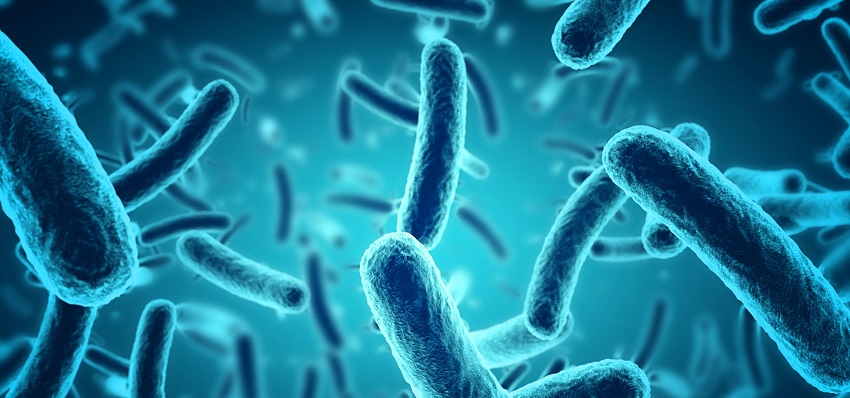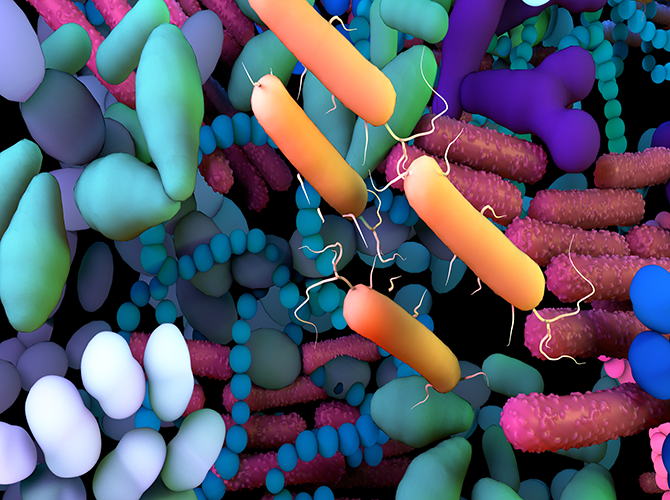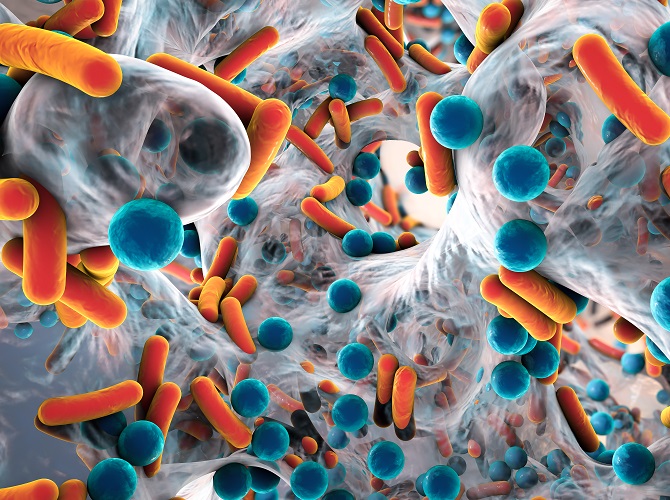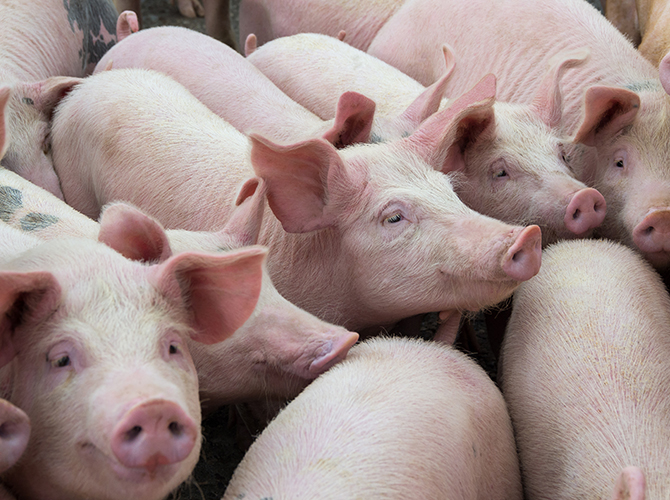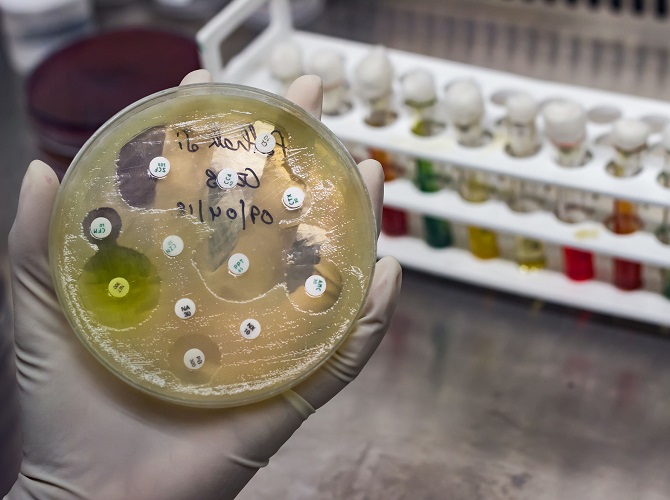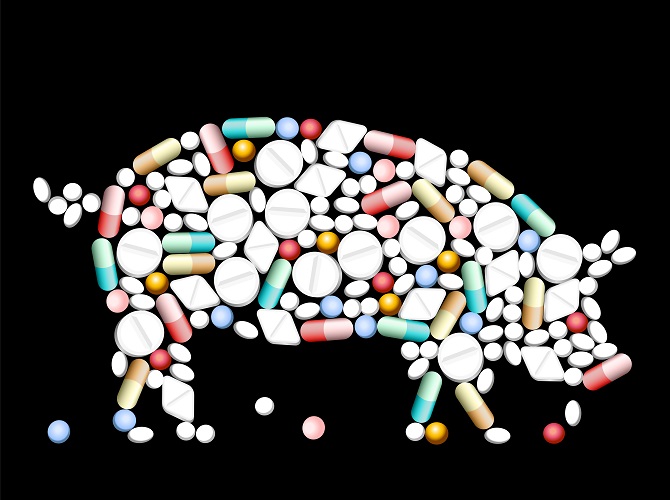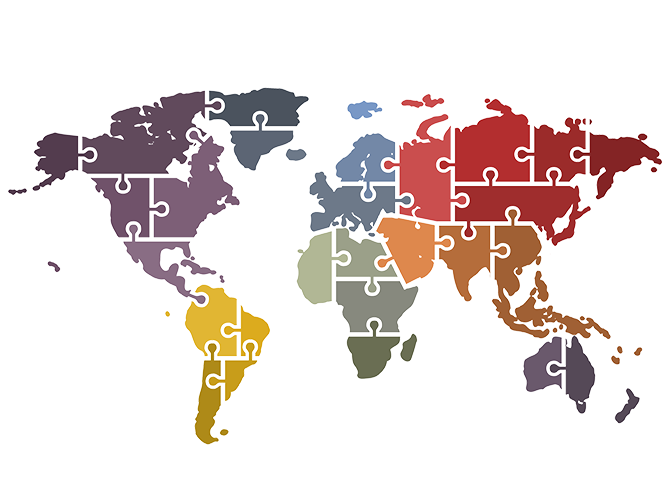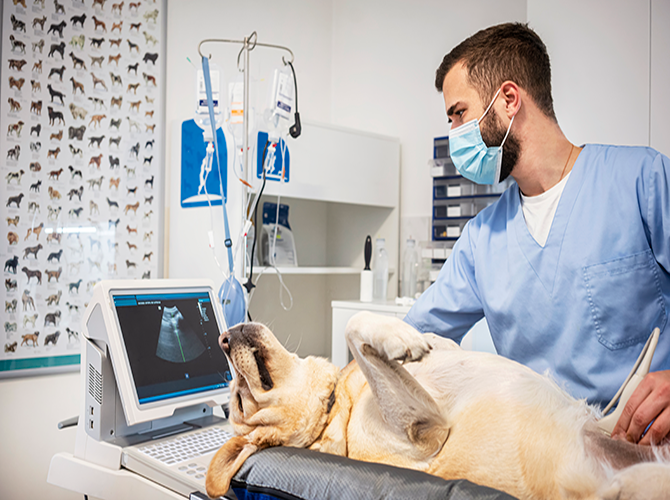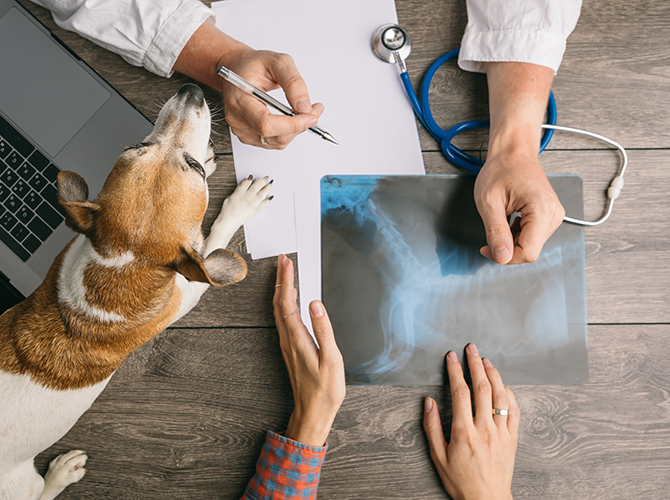
Tackling antimicrobial resistance globally
AMR is a global threat. The widespread use of antimicrobials has resulted in more resistant organisms, which may result in some infectious diseases becoming untreatable.
The underlying causes of resistance are complex, but are largely driven by the overuse of antimicrobials in healthcare and in commercial farming of animals and fish. Antimicrobial resistance affects all countries, and resistance can spread across national
borders and boundaries – so it is important to develop an international strategy to counter it. Within this broad strategy there are roles for individuals, organisations and countries to play.
Tackling antimicrobial resistance, which has been developed by The Fleming Fund and The Open University, comprises a series of online modules. The aim of the course is to help you to identify, develop and apply skills and knowledge relevant to
your role as an AMR professional in order to change and improve your working practice and the practice of people with whom you work.
AMR surveillance and you is the first module in your study pathway. It is an opportunity for you identify the skills and areas of knowledge that you need to develop for your role and to reflect on how your learning in the other modules can change your working practice in relation to AMR. From there, you will find the study pathway that best suits your role.
You will be awarded a digital badge for completing each of the modules in this course (except AMR surveillance and you). Digital badges are similar to a certificate: they demonstrate that you have gained a skill, or are evidence of your work and achievement on a module. When you complete all the modules in a pathway you have enrolled on, you will be issued with a Statement of Participation for the pathway.
After completing at least two modules, please complete this survey
. Your feedback will to help us with a piece of research about your online learning experience.
The Fleming Fund is a £265 million UK aid investment to tackle antimicrobial resistance by supporting low- and middle-income countries to generate, use and share data on AMR. The programme is managed by the UK Department of Health and Social Care.

How can you help tackle antimicrobial resistance?
Take the 7 steps that follow
Select a module to study
There are twenty-five short online modules in the course ‘Tackling Antimicrobial Resistance’. You may select modules to study from the list below.
The problem of antimicrobial resistance
In this module you will look at understanding the problem of AMR.
Try this courseCourse
6 hrs
AMR surveillance and you
In this module you will identify the skills and knowledge that will develop your role as an AMR surveillance professional; you can also reflect on how your learning from other modules in the course could change your working practice in relation to AMR.
Try this courseCourse
6 hrs
Introducing antimicrobial resistance
In this module you will look at the main modes of antibiotic action and mechanisms of antibiotic resistance.
Try this courseCourse
6 hrs
Antimicrobial resistance in animals
In this module you will explore in depth the challenge of antimicrobial resistance in animals.
Try this courseCourse
6 hrs
Isolating and identifying bacteria (human health)
This module covers microbiology techniques for isolating and identifying bacteria in clinical laboratories, including the key principles around sample collection and transport, and storage of isolates.
Try this courseCourse
6 hrs
Isolating and identifying bacteria (animal health)
This course examines the requirements for isolating and identifying pathogens important in animal health. It concentrates on general principles and practices, but gives a more detailed account of some key veterinary pathogens. It also describes the importance of correct sampling, good laboratory practice and quality control measures.
Try this courseCourse
6 hrs
Antimicrobial susceptibility testing
In this module you will look at the theoretical underpinnings of antimicrobial susceptibility testing (AST) and learn more about one of the methods for AST that is performed in a clinical microbiology laboratory.
Try this courseCourse
6 hrs
Testing for mechanisms of resistance
In this module you will explore the phenotypic and genotypic laboratory techniques that are used to test for common mechanisms of AMR..
Try this courseCourse
6 hrs
Quality assurance and AMR surveillance
In this module you will look at quality assurance and AMR surveillance.
Try this courseCourse
6 hrs
Introducing a One Health approach to AMR
In this module you will look at the concept of One Health and the importance of a One Health approach in tackling the AMR crisis.
Try this courseCourse
6 hrs
An introduction to AMR surveillance
The aim of this module is to explore the concept of surveillance, its types and purpose in the context of antimicrobial resistance (AMR). Leaners will understand how to evaluate and improve surveillance systems, and they will have the opportunity to consider their role in relation to surveillance activities.
Try this courseCourse
6 hrs
Introducing AMR surveillance systems
In this module you will explore and understand AMR surveillance systems, building on concepts and learnings from the module An introduction to surveillance.
Try this courseCourse
6 hrs
AMR surveillance in animals
In this module you will explore the concepts of surveillance and monitoring, building on the module Antimicrobial resistance in animals.
Try this courseCourse
6 hrs
Sampling (human health)
In this module you will look at sampling for AMR surveillance in human health, but will also draw comparisons to animal health, where relevant, to emphasise the importance of One Health approaches in tackling AMR.
Try this courseCourse
6 hrs
Sampling (animal health)
In this module you will look at sampling for AMR surveillance in in livestock and aquatic animal health, drawing comparisons to human health where relevant, as part of the emphasis on the importance of One Health approaches in tackling AMR.
Try this courseCourse
6 hrs
An overview of national AMR surveillance
The aim of this module is to explore and understand national AMR surveillance systems. It builds on the concepts and learnings from the module Introducing AMR surveillance systems.
Try this courseCourse
6 hrs
Communicating AMR data to stakeholders
In this module you will think about how you can make the biggest impact in communicating data on antimicrobial resistance, antimicrobial use and antimicrobial consumption.
Try this courseCourse
6 hrs
Legal and ethical considerations in AMR data
In this module you will be introduced to fundamental concepts in medical, public health and animal ethics, and how they relate to AMR.
Try this courseCourse
6 hrs
Fundamentals of data for AMR
In this module you will look at the basic concepts, definitions and sources of data related to AMR.
Try this courseCourse
6 hrs
Using AMR data for policy-making
The aim of this module is to cover the skills needed to take an active role in the policy-making process.
Try this courseCourse
6 hrs
Processing and analysing AMR data
This module looks at how antimicrobial resistance (AMR) data is transformed into information, locally, nationally and globally. It provides an overview of the stages from data collection, to data management and data analysis. It introduces the core concepts, approaches and methods for analysing data.
Try this courseCourse
6 hrs
Summarising and presenting AMR data
This module introduces common ways of summarising data visually, reviews the strengths and limitations of each approach, and discusses how you can use visual summaries to enhance the analysis of AMR-related data. The module explores the effectiveness of visual summaries in communicating important information to a wide range of people. You will have the opportunity to reflect on the most appropriate ways to visualise AMR-related data, to look for patterns and trends, and identify errors in this data.
Try this courseCourse
6 hrs
Antimicrobial stewardship in clinical practice
The aim of this module is to understand the principles of an antimicrobial stewardship programme, and the issues related to that.
Try this courseCourse
6 hrs
Diagnostic stewardship in clinical practice
In this module you will explore the effective use of the microbiology laboratory in clinical practice in order to deliver safer, more effective and efficient patient care by appropriate and timely generation of clinically relevant microbiological data.
Try this courseCourse
6 hrs
Antimicrobial stewardship in animal health
In this module, you will learn about antimicrobial stewardship in animal health and in particular, issues related to the use of antimicrobials for therapeutic and non-therapeutic purposes, animal welfare, and the role of diagnostics in guiding therapeutic decisions.
Try this courseCourse
8 hrs
Tackling antimicrobial resistance: the AMR surveillance toolkit
This toolkit is a guide for managers, team leads and senior staff in health settings in AMR surveillance networks.
Read this guideGuide
2 hrs
Pathway of AMR for a laboratory professional in human health
Pathway for laboratory technicians or assistants, technologists and laboratory scientists in the human health sector. Pathway modules cover good laboratory practice and management, the One Health approach to tackling AMR, surveillance in AMR, and the processing, analysing and use of AMR data.
Try this materialMaterial
24+ hrs
Pathway of AMR for a laboratory professional in animal health
Pathway for laboratory technicians or assistants, technologists and laboratory scientists in the animal health sector. Modules cover good laboratory practice and management, the One Health approach to tackling AMR, surveillance in AMR, the processing, analysing and use of AMR data and antibiotic stewardship in the animal sector.
Try this materialMaterial
24+ hrs
Pathway of AMR for a senior laboratory professional in human health
Pathway for Heads or manager of a laboratory or head of unit in the human health sector. Modules cover good laboratory practice and management, the One Health approach to tackling AMR, surveillance in AMR including national surveillance systems, and the processing, analysing and use of AMR data and antibiotic stewardship in the human health sector.
Try this materialMaterial
24+ hrs
Pathway of AMR for a senior laboratory professional in animal health
Pathway for laboratory heads or managers or heads of unit in the animal health sector. Modules cover good laboratory practice and management, the One Health approach to tackling AMR, surveillance in AMR including national surveillance systems, and the processing, analysing and use of AMR data and antibiotic stewardship in the animal health sector.
Try this materialMaterial
24+ hrs
Pathway of AMR for a clinical services professional
Pathway for clinicians, nurses, pharmacists and clinical officers. Modules cover the One Health approach to tackling AMR, surveillance in AMR, the processing, analysing, summarising, presenting and use of AMR data and antibiotic stewardship in clinical services.
Try this materialMaterial
24+ hrs
Pathway of AMR for a senior management clinical services professional
Pathway for Heads of hospitals, chairs of IPU committees/drugs and therapeutics/resources and superintendents. Modules cover the One Health approach to tackling AMR, surveillance in AMR including national surveillance systems, the handling and communication of AMR data and antibiotic stewardship in clinical services.
Try this materialMaterial
1 hr
Pathway of AMR for a veterinary services professional
Pathway for veterinarians, para-veterinarians, farmers, field/veterinarian officers and veterinarian pharmacists. Modules cover good laboratory practice and management, the One Health approach to tackling AMR, surveillance in AMR, the fundamentals of AMR data management and its use for communication and antibiotic stewardship in the animal health sector.
Try this materialMaterial
24+ hrs
Pathway of AMR for a senior management veterinary services professional
Pathway for Directors or deputy directors of veterinary services. Modules cover good laboratory practice and management, the One Health approach to tackling AMR, surveillance in AMR including national surveillance systems, the handling and communication of AMR data and antibiotic stewardship in the veterinary sector.
Try this materialMaterial
1 hr
Pathway of AMR for policy-makers
Pathway for members of the AMR Secretariat, government departments of health/agriculture/livestock/fisheries, and representatives from the WHO, FAO, OIE. Modules cover the One Health approach to tackling AMR, surveillance in AMR including national surveillance systems, the processing, analysing, summarising, presenting of AMR data and its use for communication and policy making.
Try this materialMaterial
1 hr
Pathway of AMR for data scientists and epidemiologists
Pathway for Data scientists and epidemiologists. Modules cover good laboratory practice and management, the One Health approach to tackling AMR, surveillance in AMR including national surveillance systems, the processing, analysing, summarising, presenting of AMR data and its use for communication and policy making.
Try this materialMaterial
1 hr

